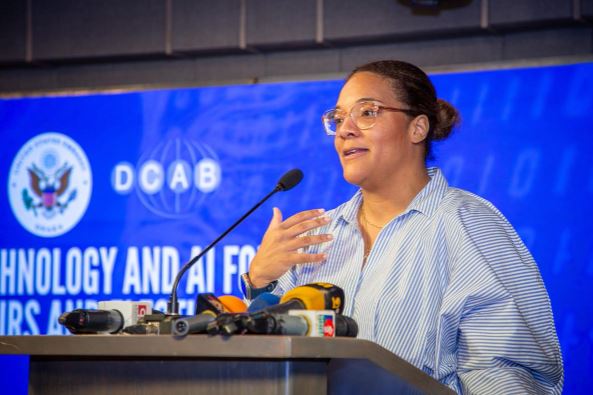News Flash
News Flash

DHAKA, Oct 29, 2024 (BSS) - Despite growing concerns over the rise of deepfakes, cheapfakes information continue to pose a significant challenge, said Dr. Heather Ashby, a US foreign policy and national security expert specialising in the impact of technology on elections.
Dr. Ashby made her remarks during an event jointly organized by the US Embassy in Dhaka and the Diplomatic Correspondents Association, Bangladesh (DCAB) at the EMK Center today.
Her work focuses on the intersection of national security, artificial intelligence (AI), and election.
Dr. Ashby explained that cheapfakes involve manipulated media, where video, audio, and images are altered with relatively simple and low-cost editing tools.
In contrast, deepfakes rely on AI to create synthetic media that can seamlessly alter video, audio, and images, making it harder to detect.
She cited an example of a cheapfake from late 2020, when spokesperson for China's foreign ministry, Lijian Zhao, shared a fabricated image of an Australian soldier holding a bloody knife next to a child.
Dr. Ashby also referenced misleading videos circulated on social media just days after the 2020 US presidential election, falsely suggesting that election workers were engaged in voter fraud.
Although law enforcement agency investigated and disproved these claims, the doctored footage gained traction on social media, illustrating the potential harm of cheapfakes.
While acknowledging the threat of cheapfakes, Dr. Ashby also discussed the role of deepfakes, which have surfaced in various elections, including the US presidential campaigns.
She noted that while some AI-generated content is used for satire and parody, these deepfakes, even when intended for humor, contribute to the ongoing issue of manipulated media in elections.
Dr. Ashby outlined several tools available for detecting cheapfakes and deepfakes.
In response to a question about AI in foreign policy, she emphasized that AI is most effective when directed toward a specific problem or challenge.
She explained that within the US national security landscape, AI has been used extensively-well before the public release of ChatGPT in 2022.
AI enables the processing of vast amounts of data, facilitating the identification of anomalies that could indicate potential threats, she said.
The US Department of Homeland Security (DHS), for instance, leverages AI to support law enforcement and emergency response.
AI helps the Federal Emergency Management Agency (FEMA) in disaster response, where it plays a critical role in efficiently coordinating resources and managing information.
DCAB President Nurul Islam Hasib also spoke at the event.